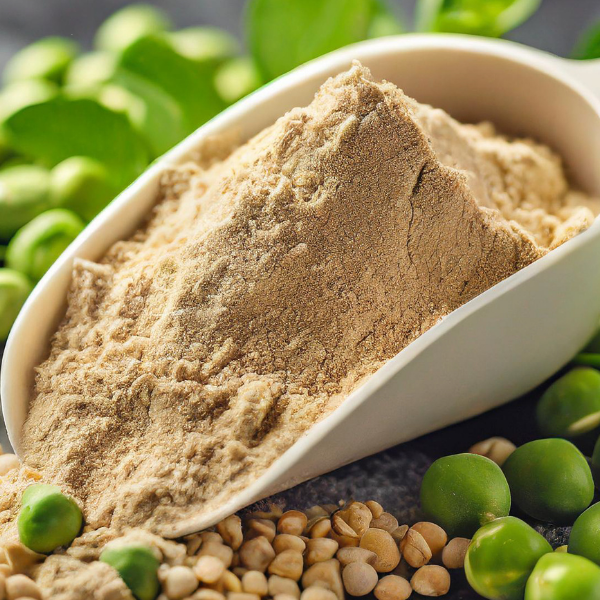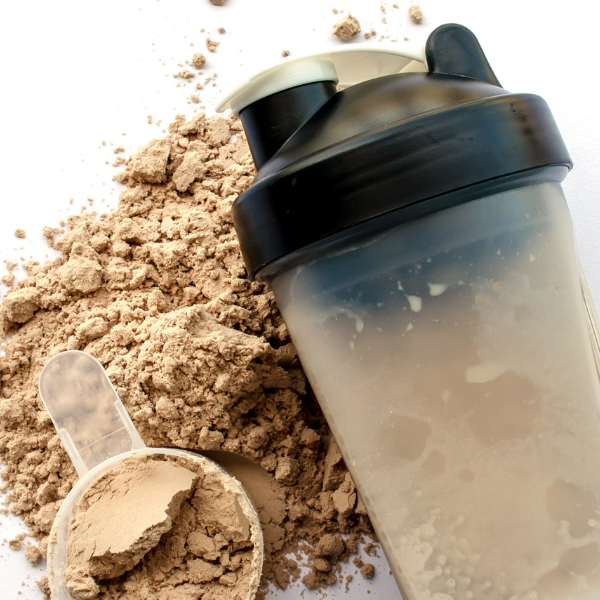When comparing both whey and plant-based proteins, it is important to consider their
nutritional profiles. Whey protein has some distinct advantages for supporting health*,
because it’s derived from the liquid by-product of milk which offers high quality protein
and contains all nine essential amino acids that are needed for muscle building and
muscle repair. Our bodies do not produce all nine essential amino acids on their own, so
we must consume these amino acids from food products.
Whey is highly digestible, allowing for quick absorption by the body.
Whey protein is a complete protein derived from milk during the cheese-making
process. Whey contains important branched-chain amino acids (BCAAs) like leucine,
which play a vital role in muscle protein synthesis and recovery*. It’s no wonder that
whey protein is a favorite among bodybuilders and athletes aiming for quick recovery
and muscle growth*.
Plant-based protein powders are made from various plant sources such as peas, rice,
soy, hemp, and chia seeds. While individual plant proteins may not always provide a
complete amino acid profile, combining multiple sources (e.g., pea and rice protein) can
result in a complete protein comparable to whey. Additionally, plant-based proteins often
come with added benefits such as fiber, and phytonutrients, contributing to overall
health*. Plant- based protein is a popular choice among those who follow a vegan,
vegetarian diet or those with lactose sensitivities.
Whether you’re looking to supplement your diet with additional protein. Protein powder
is often consumed to support muscle growth, recovery, and overall protein intake*.
Protein powders are not meant to replace a full meal but instead boost your daily protein
intake. Plant-based proteins are rich in fiber, nutritional components and minerals
offering extensive health benefits.
Comparison: Whey protein leads in amino acid concentration, but plant-based protein
offers added nutritional diversity and is often easier to digest for some individuals.
Another essential feature when comparing protein powders is to consider potential food
sensitivities. Since whey protein is derived from milk, it contains lactose. Individuals who
are lactose intolerant may experience digestive challenges if they consume it.
Additionally, some people may have a sensitivity reaction to whey itself, which can
cause mild discomfort to more intense responses.
Whey is commonly used as a protein supplement that may support the nutrient content
of the diet and have supportive effects on the immune system.
Plant-based protein powders may also cause food sensitivities to the foods they
contain, such as pea protein, but since they are lactose free, they are suitable for those
with dairy allergies or lactose intolerance. However, certain plant proteins, such as soy,
can also cause sensitivities for some individuals. The good news is that there are
multiple plant-based options, allowing users to choose proteins that suit their dietary
restrictions.
Winner: Plant-based protein is an inclusive option for individuals with sensitivities and
intolerances. Natures Answer’s Plant Head protein powder is non-GMO, soy-free,
lactose-free, and gluten-free, making it an excellent choice for those with specific dietary
restrictions. With Plant Head Protein, you still receive all nine essential amino acids,
free from common allergens, while supporting muscle growth and recovery*.
One of the standout features of whey protein is its rapid absorption. It is generally well
tolerated and quickly absorbed making it ideal for post-workout recovery when muscles
need a quick flow of amino acids to repair and grow. Whey protein provides a full amino
acid profile, it is a good source of BCAAs (branched-chain amino acids) making it more
effective for muscle building and post-workout recovery*. However, the lactose in whey
can cause digestive discomfort for individuals with lactose intolerance. Even those
without known sensitivities may occasionally experience stomach discomfort from whey.
Plant based proteins have higher contents of fiber which can slow digestion and
absorption, providing a steadier release of amino acids. This slower absorption rate
promotes prolonged muscle protein synthesis and increased feelings of satiety*. While
this may not be ideal for immediate post-workout recovery, it’s beneficial for sustained
energy throughout the day. Additionally, plant-based proteins are often easier on the
digestive system, especially for those with lactose intolerance or sensitive stomachs.
Comparison: Whey wins for speed of absorption, but plant-based protein excels in
gentleness on digestion and long-term satiety.


